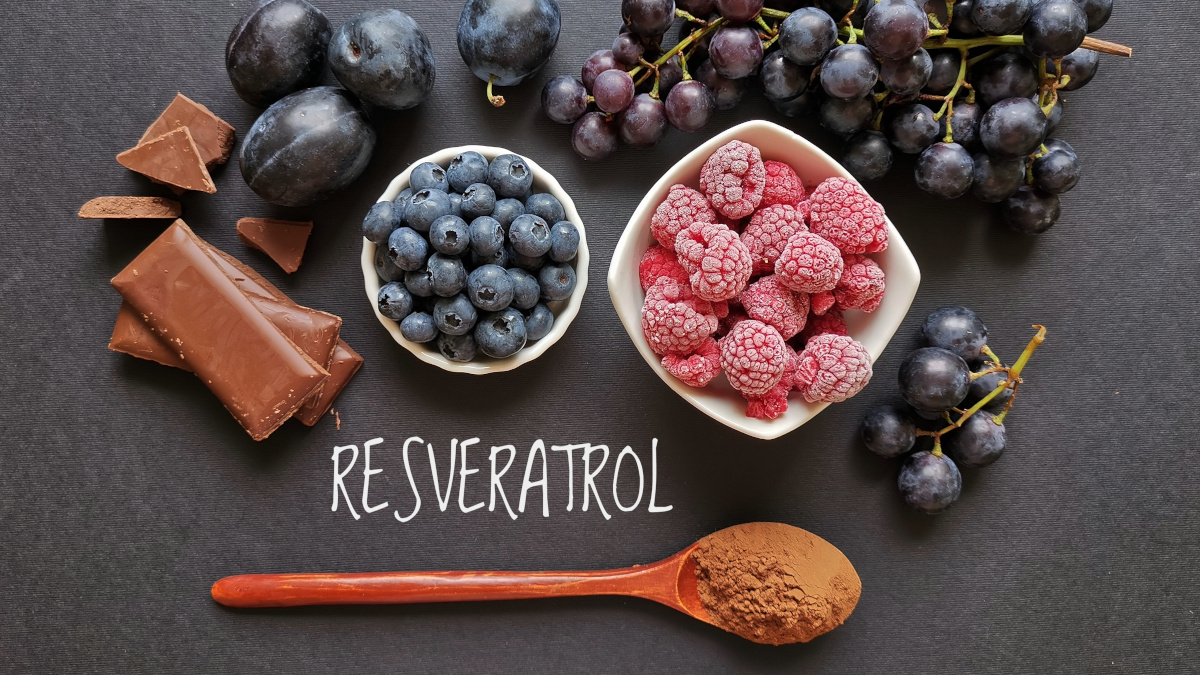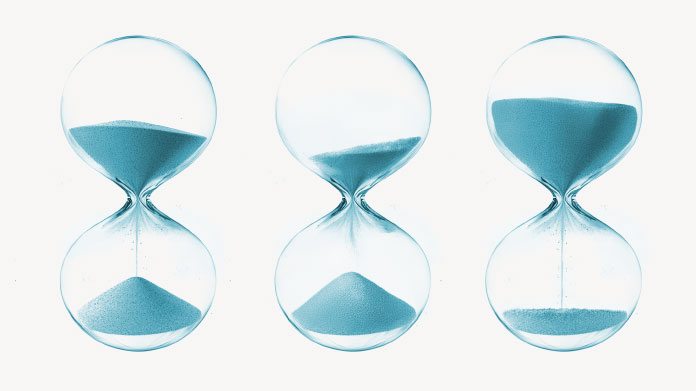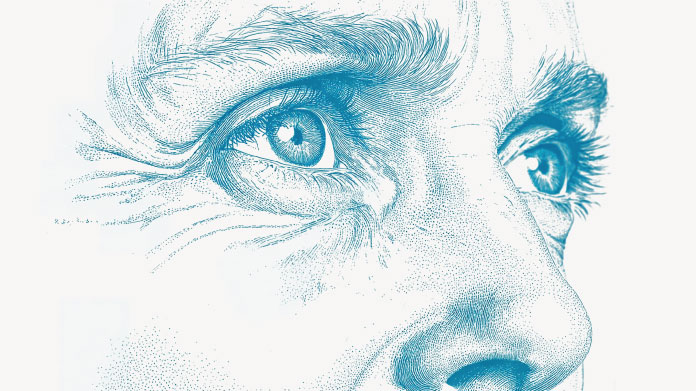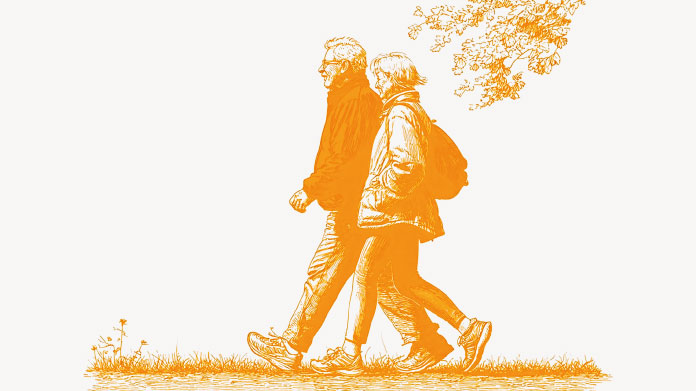Resveratrol: the benefits and side-effects of this ‘fountain of youth’
Resveratrol is a powerful and beneficial polyphenol found at high levels in grapes - and therefore wine. Discover its effects and in which circumstances to either prioritise or avoid it.

What exactly is resveratrol?
Resveratrol is an active ingredient found in grapes, blackberries and peanuts.
It is also found at significant levels in wine: as a constituent of the grape’s skin and seeds, it passes into grape juice during the production of wine.
Resveratrol is primarily known for its protective effects on the cardiovascular system and is thus a key area of interest in anti-aging research. It is also frequently mentioned in connection with the famous ’French Paradox’. But what exactly does this term signify?
Resveratrol and the ‘French Paradox’
In the 1960s, British epidemiologists observed that there was a higher incidence of cardiovascular health issues among the population of Britain compared with that of France. This, despite the fact that French cuisine is famous for containing generous amounts of fat. Thus the origin of the famous paradox lies in these logic-defying observations.
In 1992, two researchers, Serge Renaud and Michel de Lorgeril, published a study suggesting that the ‘French Paradox’ could be explained by the high content of polyphenols (including resveratrol) in the fruit, vegetables, olive oil and wine routinely consumed in France(1).
While certain aspects of the study require further perspective, this research was largely responsible for raising awareness of the virtues of resveratrol, sometimes referred to as the ‘fountain of youth’. And it remains the beneficial polyphenol most associated with the French diet.
Does resveratrol pose any risks?
In actual fact, very few risks have been associated with resveratrol. Nevertheless, it’s important to be aware that some do exist.
Adverse effects on certain cancer treatments
Some conventional treatments for cancer are based on an oxidant effect of the body’s cells. Taking resveratrol at the same time as such treatments may mean that the polyphenol’s antioxidant properties have an inhibitory effect on the cancer treatment.
Interactions with other drugs
Resveratrol can sometimes exert an anticoagulant effect on the body (2). It’s therefore important that your doctor knows you are taking resveratrol if he or she has prescribed you medication with the same effect.
In the same vein, if you are taking supplements that thin the blood, check with your doctor before simultaneously supplementing with resveratrol.
As a general rule, taking resveratrol is contraindicated before surgery.
Potential side-effects
The majority of people who regularly supplement with resveratrol demonstrate good tolerance. However, certain side-effects have been noted, including gastrointestinal problems.
A very favourable risk-benefit ratio
Overall, resveratrol remains an active ingredient with many benefits for cardiovascular health. Apart from eating foods rich in this polyphenol, which resveratrol supplements should you take?
Choosing the right resveratrol supplement
A number of formulations are available catering for a wide range of needs:
- pure extract of resveratrol. The natural supplement Resveratrol 20mg, for example, contains resveratrol obtained from organically-grown red grapes and Polygonum cuspidatum, and comes in the form of 100% vegan capsules;
- you also have the choice of taking a synergistic formulation containing several active ingredients. With Resveratrol Synergy, you get the benefits of a mix of powerful, natural compounds (transresveratrol, quercetin, fisetin...) boosted by the addition of vitamin C;
- or you could supplement daily with Trans-Resveratrol, obtained exclusively from Polygonum cuspidatum (also known as Hu Zhang) ;
- and last but definitely not least, there’s pterostilbene, a double methylated version of resveratrol with 2-4 times greater cellular absorption than standard resveratrol.
References
- Renaud S, de Lorgeril M. Wine, alcohol, platelets, and the French paradox for coronary heart disease. Lancet. 1992 Jun 20;339(8808):1523-6. doi: 10.1016/0140-6736(92)91277-f. PMID: 1351198.
- https://www.mskcc.org/cancer-care/integrative-medicine/herbs/resveratrol
Keywords
3 Days
great products and prices
great products and prices
Marie
9 Days
Easy to navigate site
Easy to navigate site, had what I was searching for, good price. easy order-check out
James Tucker
15 Days
My skin is clearing up nicely!
Pretty good for my skin so far.
Christian
18 Days
The new packaging is excellent
The new packaging is excellent - finally! No more squashed boxes and torn envelopes.
GORAN
18 Days
Great Product
Great Product
Larry Garrett
23 Days
Quick shipping
Quick shipping; good price. No issues!
Mary McCarty
24 Days
Thr product is very good and is helping…
Thr product is very good and is helping me on my health. Then is always on time
LUGO Luz
27 Days
Buying was fine
Buying was fine. I had problems with the website not recognizing my login info, and had to call to get it fixed. Other than that, everything was good.
David S. Clark
27 Days
Your super maca and super ginseng are…phenomenal
Your super maca and super ginseng are phenomenal supplements that compliment each other when taking them together. Fantastic feeling of well-being and lots of mid day energy without the crash.
Keith Mason
30 Days
I have had amazing results with every…
I have had amazing results with every supplement I've purchased. I am extremely satisfied with this company
kirstin Torres
30 Days
Fine products
Fine products . They are on the leading edge of online supplements. The only issue -so far-is they sometime run out of subscription items.
Jason Argos
32 Days
The ordering process is very user…
The ordering process is very user friendly and the products always come in a timely manner.
CARTER Rhonda
34 Days
The price for Dr
The price for Dr. Pero's AC-11 is reasonable and in line with his views. (my former colleague). Keep it pure.
CAMPBELL Clayton
36 Days
Right on every time.
Right on every time.
Arthur Nicholas
39 Days
They are cheaper than everyone else and…
They are cheaper than everyone else and the shipping was fast. Great company.
Patricia Adams




